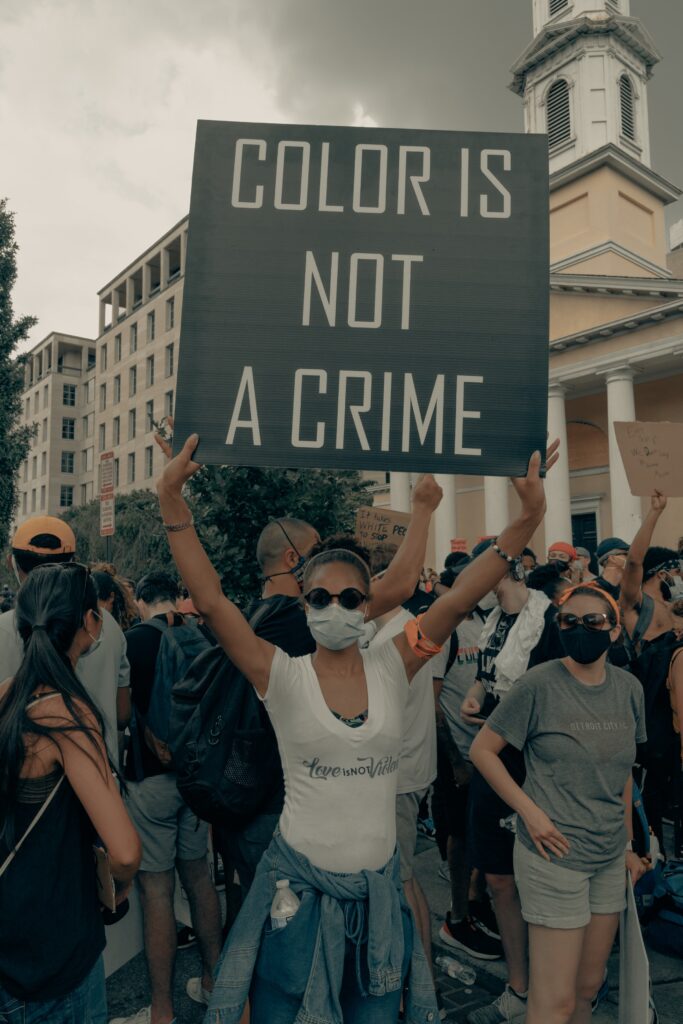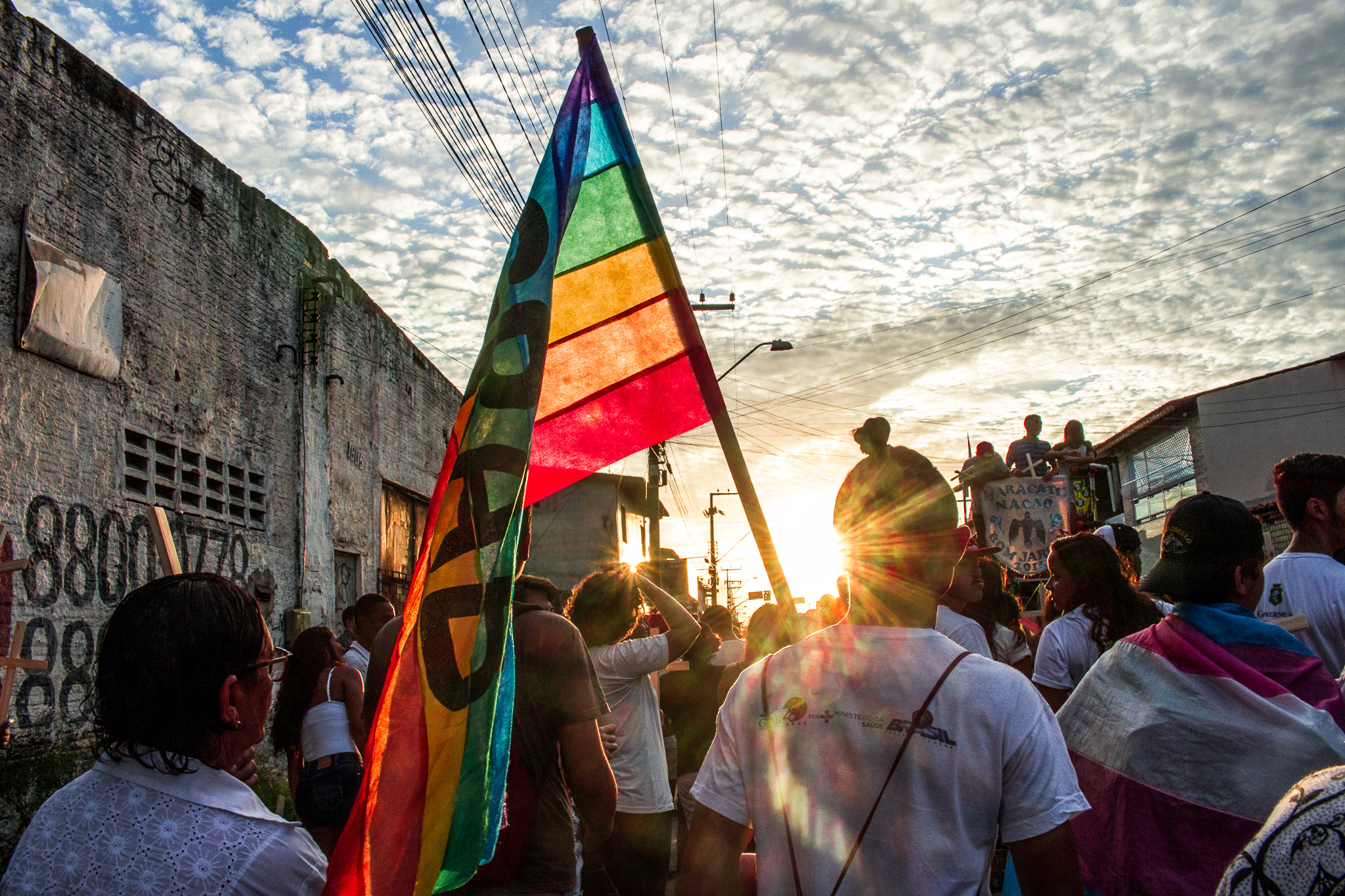Addressing racism in prisons worldwide

“Ending mass incarceration is crucial for racial justice all over the world. That’s only possible through the collective power of strong, diverse social movements led by the most affected communities, especially communities of colour,” says Allyne Andrade, deputy director of the Brazil Human Rights Fund.
Racism and discrimination around the world manifest clearly in criminal justice systems. From discriminatory policing to the denial of basic due process rights, marginalised communities are frequently the subject of unfair and unequal treatment. In many countries, racism and other forms of discrimination are deeply embedded in criminal justice systems. In the International Human Rights Programme, we see the need to address racism in prisons as a key lens to our work on ending unnecessary pre-trial detention.
A global problem
In 2013, Oak began supporting not-for-profit organisations working in the criminal justice sector in Brazil, India, and across Europe. These organisations seek to reduce arbitrary pre-trial detention, and to stop torture and police violence. Our partners quickly showed us that in these countries there are various forms of racism and discrimination.
Brazil has the third most incarcerated people (roughly 770,000) in the world. Black people are significantly overrepresented compared to the general population. In 2019 alone, the police killed over 5,800 people, of which the vast majority were Black. Conditions in detention centres are overcrowded, unsanitary, and regularly violent, with little regard for basic human rights or possibilities for rehabilitation.
In India, recently released data by the Indian National Crime Records Bureau showed that a range of ethnic and religious minorities are overrepresented in prisons. For example, Dalits and tribal people make up 21 percent and 10.5 per cent of pre-trial detainees respectively, even though they only constitute 16.6 per cent and 8.6 per cent of the total Indian population. These statistics are especially concerning givent that nearly 70 per cent of all incarcerated people are being held pre-trial – a total of 330,487 individuals. [1]
In Europe, while there are not any official statistics which are disaggregated by race or other ethnicity, research by academics and not-for-profit organisations indicate similar problems. For example, in the UK, Black and minority ethnic people make up 27 per cent of all incarcerated people, yet only comprise 14 per cent of the total UK population. [2]
A growing voice
Oak supports not-for-profit organisations that seek to address the clear evidence of racism in criminal justice systems. These organisations work to raise the voices of communities, in particular Black or minority groups, as well as communities who are under-represented in debates about public security and criminal justice reform.
Our partners know the importance of recognising and addressing different forms of discrimination present in many societies.

In partnership with the Brazil Human Rights Fund, Oak has been supporting a number of not-for-profit organisations in Brazil. These include Criola and Inegra, Black feminist organisations in Rio de Janiero and Ceará respectively, which work with women in pre-trial detention. We also support CFNTX, a Black youth-led organisation in Para, and NAJUP in Matto Grosso do Sul, which focuses on helping Indigenous people in prison. In addition, Amparar, Rede de Movimentos e Comunidades contra a Violência, and Eu sou Eu work with formerly incarcerated people, or with friends and family members of incarcerated people. They also seek to build better respect for the rights of individuals in contact with the justice system in Brazil, and to help raise their voices.
Additionally, several of our partners are beginning to explore race and privilege more deeply within their own organisations. As in many countries, traditional not-for-profit organisations active in the criminal justice space are often concentrated in major capital cities and employ few people from affected communities.
Our partner Conectas, which works to defend and promote the realisation of human rights and contribute to the consolidation of the rule of law in the global south, has sought to ensure that it better represents the communities it serves. “We felt it was very important to mirror the change that we want to see in society, and to show that it is possible to change,” says Juana Kweitel, executive director of Conectas. “Embedding a racial equity lens has had a very profound impact, not only on the work of Conectas, but also on a personal level for all members of staff. It was a long overdue obligation.”
“We felt that it was very important to mirror the change that we want to see in society, and to show that it is possible to change.”
Juana Kweitel, executive director, Conectas
Accountability matters
Basic due process guarantees that hold criminal justice systems accountable also remain important safeguards. In particular, early access to counsel is key in addressing discriminatory and violent policing practices. It is also central to mitigating some of the due process violations that expose marginalised groups to long-term violations of their rights within the criminal justice system.
The Commonwealth Human Rights Initiative and Human Rights Law Network have sought to increase access to lawyers in India, either through the establishment of direct legal aid programmes or by advocating for the creation of legal aid clinics in police stations or courts, which are currently being rolled out in the country. They have also sought to strengthen accountability mechanisms by documenting police violence and seeking greater accountability under the Scheduled Castes and Tribes (Prevention of Atrocities) Act, as well as directly with vulnerable communities.
Discrimination has many facets
Our partners know the importance of recognising and addressing differing forms of discrimination present in many societies. For example, in India, discrimination based on religion or caste is more prevalent than race. In Europe, partners such as the Bulgarian and Hungarian Helsinki Committees highlight the widespread discrimination against Roma communities in eastern European societies.
At Oak Foundation, we have found that integrating a lens that helps us see inherent discrimination more clearly is fundamental to an effective grant-making strategy. It has been key to strengthening the overall impact of our work. If you want to know more about what our International Human Rights Programme is doing, check out our website.
[1] National Crime Records Bureau Ministry of Home
Affairs, Prison Statistics India 2019, https://ncrb.gov.in/sites/default/files/PSI-2019-27-08-2020.pdf
(Accessed 27-01-2021)
[2] Prison Population September 2020, Prison population by ethnic group and sex, https://assets.publishing.service.gov.uk/government/uploads/system/uploads/attachment_data/file/930646/Population_30Sep2020.ods
(Accessed 27-01-2021)